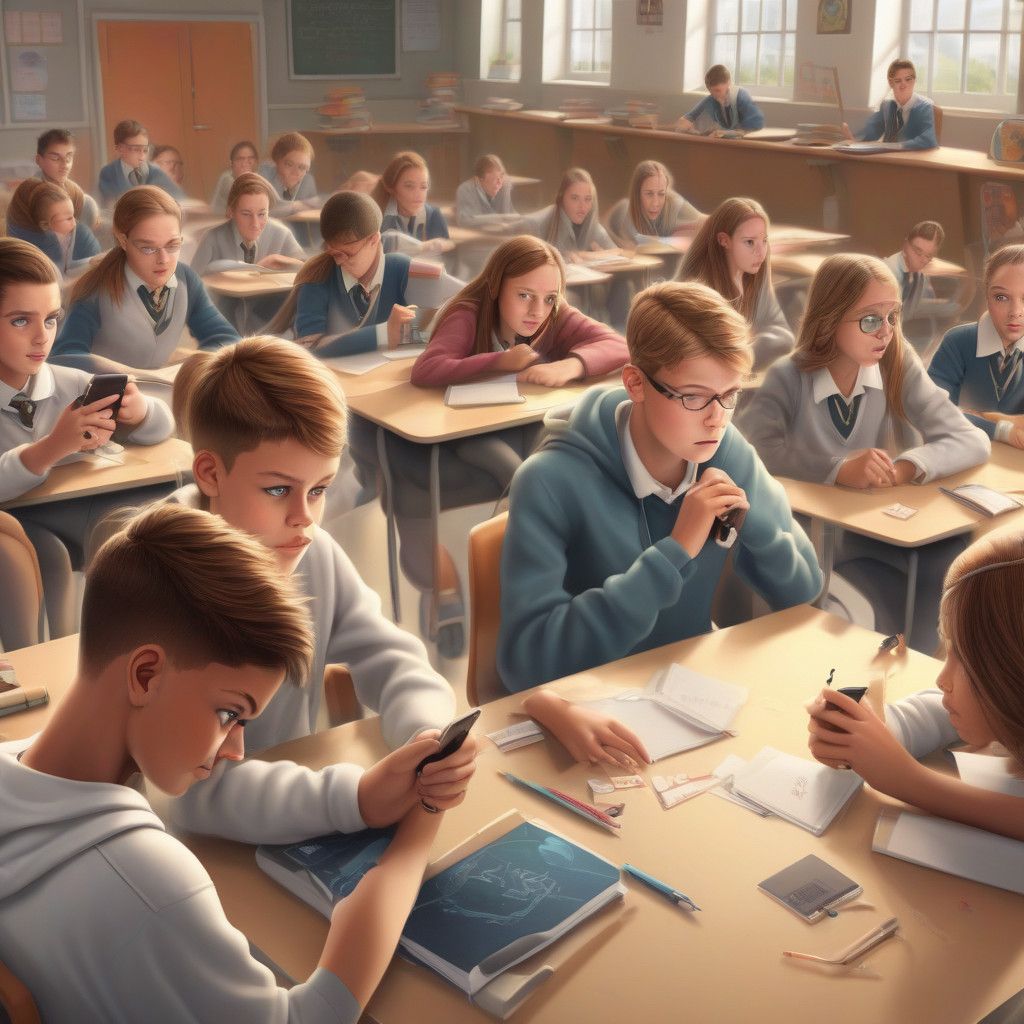In recent years, the challenges facing educational institutions due to smartphone usage have become increasingly evident. Schools across Belgium are now taking proactive measures to address the dual threats of distractions and cyberbullying related to mobile devices. An international school near Brussels has introduced a strict policy mandating that students store their smartphones in lockers at the start of each school day. This initiative aims to create a focused learning environment and echoes a growing trend across Europe, where countries such as the Netherlands, France, and Ireland are also considering similar strategies.
Under the leadership of school director David Bogaerts, this initiative is expected to spread to hundreds of schools throughout Brussels and Wallonia. The Francophone community government has announced a comprehensive ban on smartphones in primary schools and the first three years of secondary education, reflecting a broader cultural shift regarding technology in education. The motivations behind these restrictions are multifaceted but stem from mounting concerns about the negative impacts of excessive screen time on children’s mental health and academic performance.
Ursula von der Leyen, the President of the European Commission, has expressed alarm about the detrimental effects of social media during critical developmental years. The addictive nature of applications like TikTok and Snapchat has proven particularly troublesome for educators, who find it increasingly difficult to maintain student engagement amidst the distractions these platforms create.
The Wallonie-Bruxelles Enseignement (WBE), the federation for Francophone schools, supports the introduction of this ban, stating that previous attempts to manage smartphone use fell short. WBE’s argument that previous, less strict measures have failed highlights a key point: sometimes, decisive action is necessary to reshape school environments effectively.
Supporters of the ban argue that it clarifies expectations for student behavior, potentially leading to improved concentration and engagement in the classroom. However, critics caution that banning smartphones altogether may hinder opportunities for students to learn responsible technology usage—a skill crucial in today’s digital landscape. As such, alternatives must also be considered.
One potential solution is to incorporate technology into the classroom in a structured manner. Schools could use educational apps and tools that monitor smartphone usage, allowing students to engage with their devices in a constructive way. Integrating laptops or tablets could promote digital literacy while ensuring students remain focused on their studies.
Several European countries have explored educational policies surrounding mobile technology. For example, France has already implemented a smartphone ban in schools; the Netherlands has followed suit. These measures reflect a growing consensus that technology, while beneficial, can also pose significant challenges within educational settings.
The debate surrounding the impact of smartphone bans continues in various locations worldwide, including the United States, where similar discussions are unfolding. The key question remains: how best can educators balance the benefits and drawbacks of smartphone usage in an academic context?
Ultimately, the policies implemented by Belgian schools may serve as a model for institutions globally. As they establish more defined boundaries regarding smartphone usage, the objective is not only to minimize distractions but also to cultivate a more attentive and engaged student body. Whether through outright bans or regulated usage, the focus will always revolve around fostering a conducive learning environment.
The recent steps taken by Belgian schools symbolize a commitment to prioritizing educational excellence and mental well-being. As these policies take root, it will be crucial for educators, parents, and policymakers to collaborate closely, ensuring that while constraints are necessary, they do not obstruct the educational opportunities that technology can provide.
In summary, the tightening of smartphone restrictions in Belgian schools reflects a pivotal moment in the discourse on technology and education. Educators, parents, and policymakers must engage in ongoing dialogue to find the best solutions that support student development while tackling the challenges posed by smartphones.












